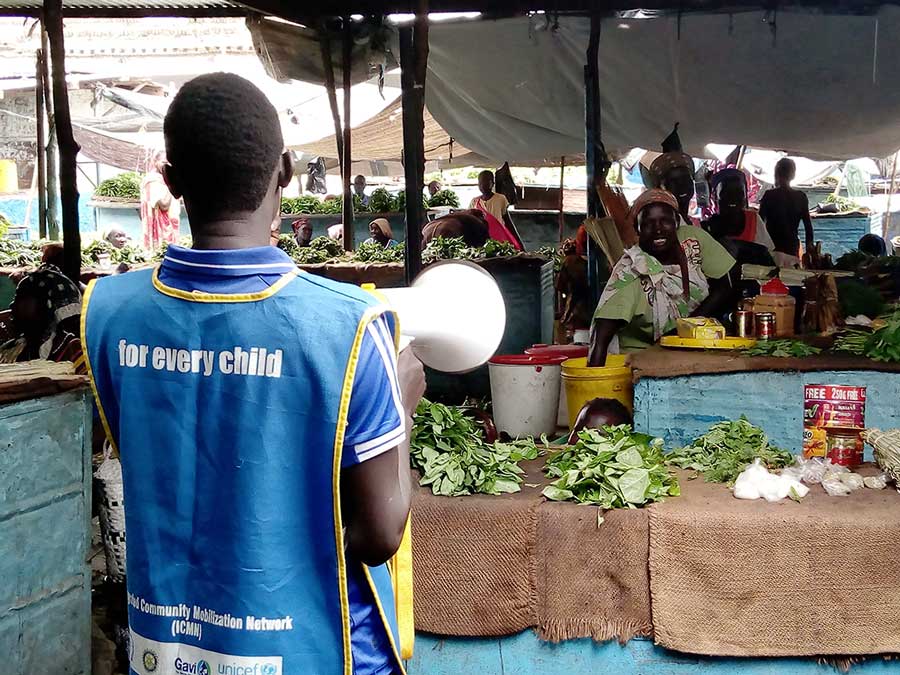Reaching communities with immunisation in South Sudan
To reach zero-dose children in conflict states like South Sudan, social mobilisers like Nyok Daniel are crucial to winning the trust and support of local communities.
- 4 May 2021
- 3 min read
- by UNICEF South Sudan

On a sunny Thursday morning, Nyok Daniel, 25, walks through a busy street in the center of Malakal, South Sudan, holding a megaphone in his right hand.
He draws to a halt near a group of women arranging food items on roadside stalls. What follows is a loud crackle of his megaphone.
“Please take your children for vaccination five times before the child is one year old” he shouts.
The COVID-19 pandemic compounds an already-fragile situation that humanitarian agencies are trying to salvage, working with the public.
“Vaccines are safe and effective” he says again in local dialect to get the attention of the people who were surrounding him.
He turns to men sipping tea in front of a makeshift restaurant crafted from rusty iron sheets that make up both the walls and roof.
“Please get your children vaccinated against polio, measles and other vaccine-preventable diseases,” he says and branches off the main road into a crowded market to continue giving immunisation messaging.
Nyok makes sure that mothers and caregivers in the community are aware of the continuation of routine immunisation services despite COVID-19.
For a locality reeling after years of brutal conflict, which left in its wake debris of destruction as well as a poor health system and infrastructure, the COVID-19 pandemic compounds an already-fragile situation that humanitarian agencies are trying to salvage, working with the public.
Have you read?
As we walk into the market, Nyok tells me about his role managing social mobilisation and demand generation for routine immunisation in the community, as a social mobiliser for UNICEF’s C4D Integrated Community Mobilisation Network, which is supported by Gavi.
“I have to make sure that our people are informed to change their behaviors on immunisation, to reduce incidents of measles and other VPDs in my area. I want our people to understand that prevention is better than cure,” Nyok says.
Orphaned at 12 by a widow with six children, Nyok spent a significant part of his childhood battling preventable diseases, trekking with his mother from one town to another in search for better basic services and helping his mother with household chores.
“I used to babysit my siblings and had no time to go to school.”

Credit: UNICEF South Sudan
Nyok is now on a mission: to ensure no child relives his story. Nyok is responsible for mobilising all the families with children under one in his working area of 250 households.
He conducts interpersonal communication sessions with mothers and caregivers, briefs religious and community leaders on routine immunisation, works closely with youth and women groups, conducts mothers’ meetings and also works closely with health workers to track defaulters and mobilise all families of newly born children. As a result of Nyok’s efforts he has been able to achieve 90% immunisation coverage in his target area.
More from UNICEF South Sudan
Recommended for you






